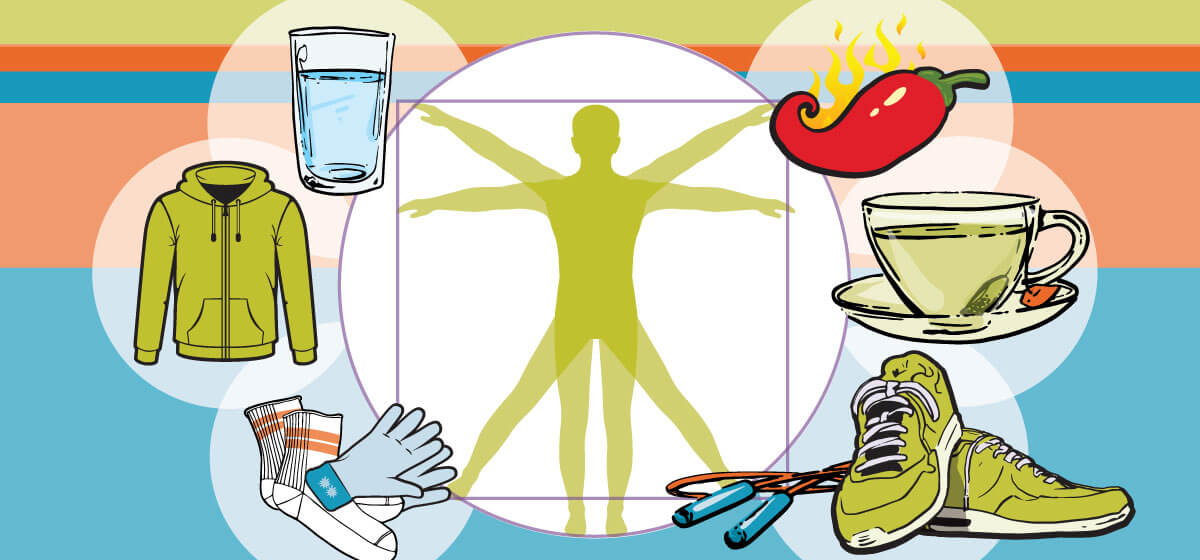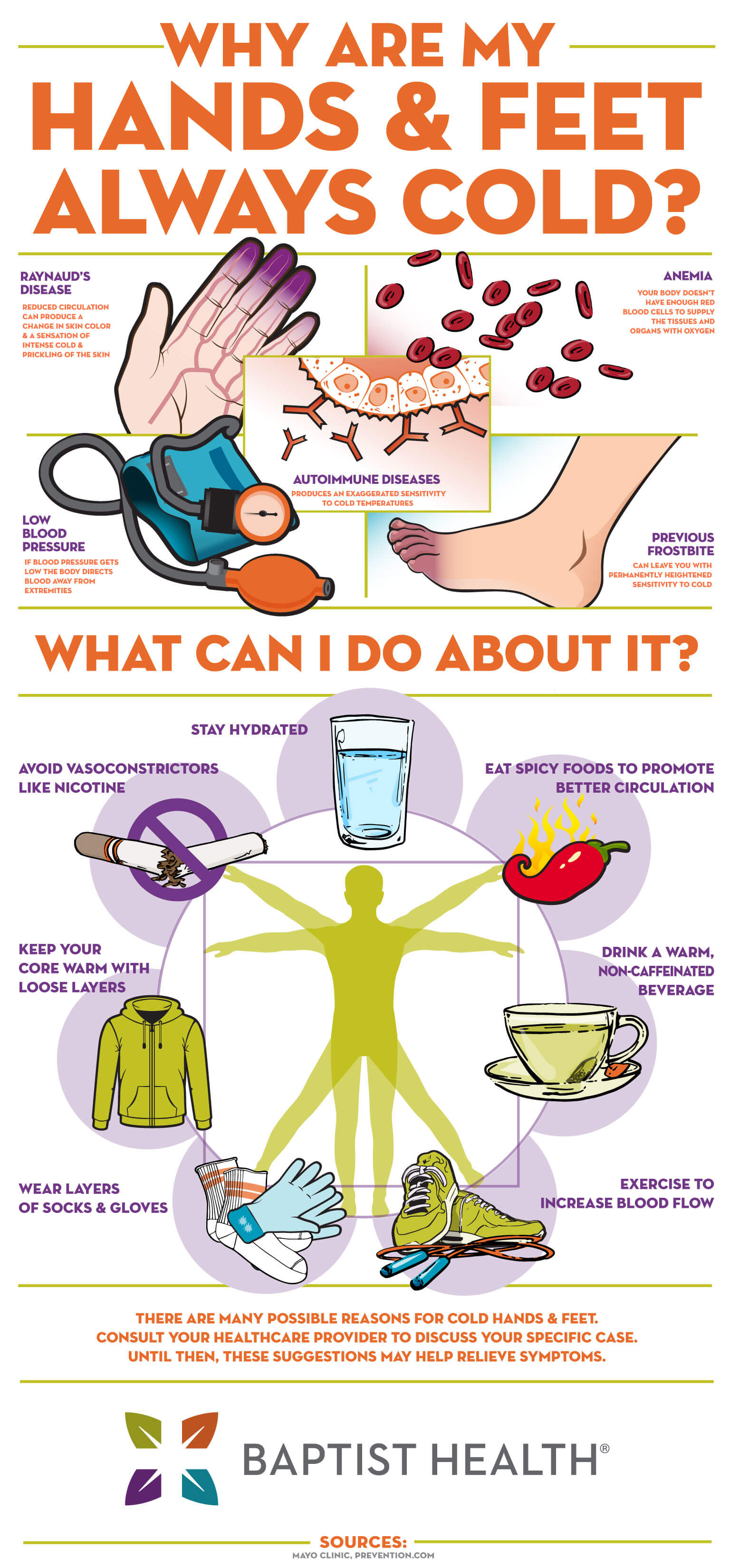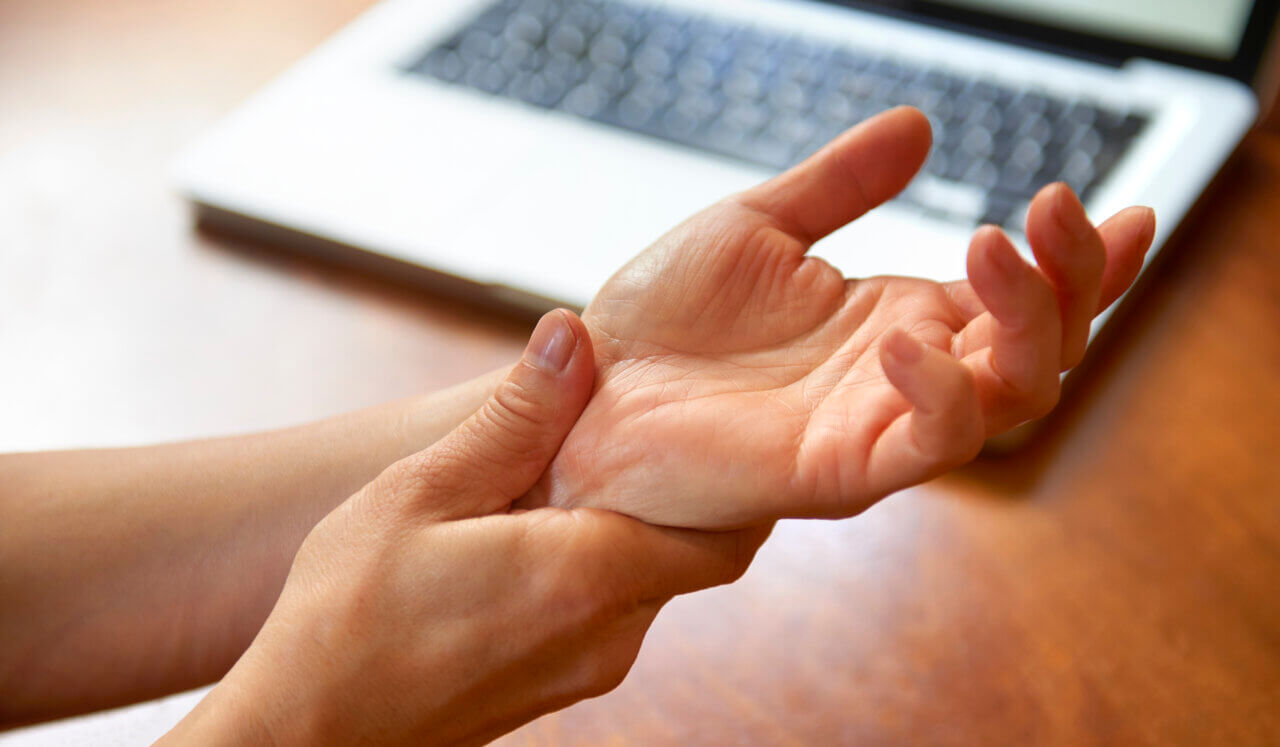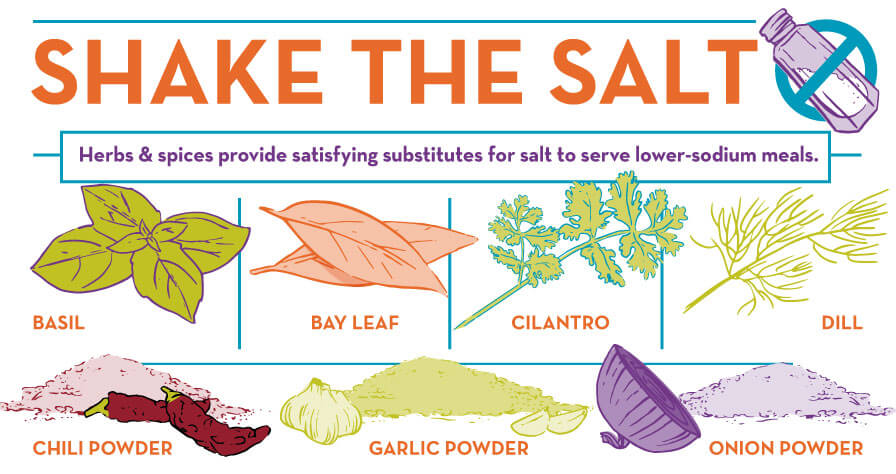What Causes You to Always Have Cold Hands and Feet?

Each person’s natural response to temperature changes is different. For example, what feels pleasantly cool to one person may feel unpleasantly cold to another simply because of how the body interprets the temperature and makes physiological adjustments to it. When someone complains about having constantly cold hands and feet, it could be a sign of an underlying condition. The causes of cold hands and feet may be a disease, a previous illness, or a person’s natural bodily reaction.
Potential Causes of Cold Hands and Feet
Raynaud’s disease
Also known as Raynaud’s phenomenon or syndrome, this generally harmless condition causes what is called vasospasm in which small arteries that supply blood to the skin narrow. This can occur in response to exposure to cold or heightened stress. The reduction of circulation to affected areas can produce a change in skin color, the sensation of intense cold and prickling of the skin as it warms or as the stress is reduced. Raynaud’s phenomenon can exist independently or may be the symptom of another health condition.
Anemia
In anemia, the body doesn’t have enough red blood cells to supply the tissues and organs with oxygen. Anemia can be caused by a wide variety of illnesses, and it may be minor or severe and temporary or ongoing. Your doctor can test for anemia and, if it is present, work with you to resolve the root cause.
Low blood pressure
Hypotension, or low blood pressure, can result from a number of medical conditions. If your blood pressure gets too low, your body directs blood away from your extremities and toward the critical organs in your core. This can leave hands and feet feeling cold.
Previous frostbite
Frostbite is an injury caused by freezing of the skin and the tissue below it. It is most common on fingers, toes, ears, nose, cheeks and chin. Frostbite should be treated by a medical professional promptly if it occurs. However, even after successful treatment, it can leave you with permanently heightened sensitivity to cold.
Autoimmune diseases
Autoimmune diseases such as lupus and scleroderma can affect sensitivity to cold. Lupus causes the body’s immune system attacks its own tissues and organs. One of its many symptoms is Raynaud’s phenomenon. Scleroderma is a rare disease that involves the hardening and tightening of skin and connective tissue. It produces a number of symptoms, one of which is exaggerated sensitivity to cold temperatures.
Take Action Against Cold Hands and Feet
The first step in addressing perpetually cold hands and feet is to talk with your doctor to identify and treat the underlying cause. Beyond that, you can decrease your discomfort by:
- Wearing layers of socks and mittens/gloves as needed
- Eating spicy foods, which promote better circulation and vasodilation
- Staying hydrated
- Keeping your core warm with loose layers that don’t restrict blood flow and that can be removed as appropriate
- Drinking a warm, non-caffeinated beverage
- Avoiding vasoconstrictors like nicotine and caffeine
- Using chemical hand/foot warmers as directed by the manufacturer
- Staying active through exercise and activities that increase blood flow
Cold hands and feet, even if they aren’t the result of a serious condition, can impact your quality of life. So, take action to help keep them warm and toasty!
So, take action to help keep them warm and toasty and find a Baptist Health provider to discuss the underlying cause.




